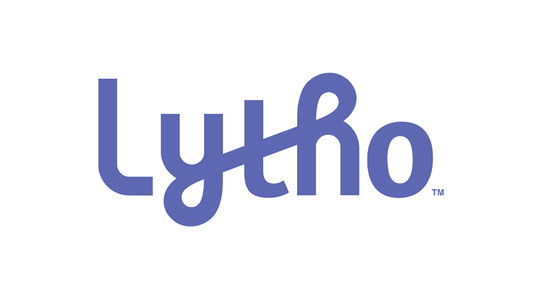

RUSS SOMERS
CMO
Lytho
CMO COUNCIL: Tell us a little about your background and how you got to where you are now.
SOMERS: I don’t know that there’s a “typical” path to CMO, but my path has been different than most. For the first 13 years of my career, I played in bands and tended bar after dropping out of college. I got a degree in my 30’s, worked in restaurant and retail management for a few years, and went back for an MBA in order to pivot into technology marketing.
My first marketing roles were data- and analytics-intensive roles for Fortune 50 companies, primarily focused on corporate strategy, pricing and product marketing. I moved into leadership roles in startups, building out marketing teams that led to successful exits on several occasions – and notably Invodo and Trendkite.
In both of those roles, we were building analytics around marketing content – video content at Invodo, PR content at Trendkite – that was thought of as hard to measure at the time. The epiphany I had, in both those roles, is that the quality of the content and creative is what drives marketing results.
Marketers spend a lot of time on the technology, but without great content, all that technology is just plumbing. That led me to focus on the question, “how can I help marketing teams develop content that drives better outcomes,” and that question has guided my career in recent years. Or, as I sometimes say, I came into marketing from the data side, and then fell in love with creative.
CMO COUNCIL: What are some of the secrets to better collaboration with peers in the C-suite and lines of business?
SOMERS: As marketers, we like to talk, and we like to persuade. Those are our superpowers. In fact, a friend told me that my superpower is that I “can make almost anyone believe almost anything for seventeen seconds.” So, we love to roll out that next big campaign and get everyone super excited about it, and it’s even better when we can bring data to the table to prove our case.
That doesn’t always serve us well, though. Playing well together in the sandbox is underrated. To do that, you’ve got to establish empathy and trust. You get there by listening, you get there by asking questions, and you get there by being quiet and letting the others talk more. And you get there by being less defensive, willing to be wrong, and showing grace to others.
Those are all things that require psychological safety, which I find is the secret to a high-performing team on any level.
CMO COUNCIL: Where do you focus most of your time, attention and brainpower on a day-to-day basis?
SOMERS: The first thing I do on a daily basis is set goals for the day – broad goals, phrased as “today will be successful if we ______.” There are never more than three such statements, otherwise, you get fragmented. Often there is only one.
The second thing I do, and this is super important, is to unblock my team. Remembering that it’s a global team, there may be people who are already midway through their day. I check to see what creative assets are in review and require approvals or feedback, what requests people have for information or guidance, and what else I can do so that they know their priorities and are free to move to accomplish them. Our core value is “Let people run.” That requires me to set the direction and clear the track so that they can run.
The third thing I do is check key marketing metrics. It always starts with inbound leads, but I also always take a quick look at site traffic, engagement, which content people are responding to on the site or on social, and other things. That may identify areas that need immediate attention, or it may lead to data-driven insights that help us do better campaigns going forward.
CMO COUNCIL: What marketing skills will be needed in the future and why?
SOMERS: Marketing is both math and magic, and the modern marketer will increasingly be called on to be a master of both.
Let’s talk about the math first. At this point in marketing technology, skills are the ticket to entry, and that requirement won’t go away. So, of course, marketers need to be fluent in marketing automation, understand the principles and technology behind digital marketing, and be able to make data-informed decisions. I think of that as the left brain of marketing – understanding the math behind how marketing drives content outcomes.
But there’s a right-brain element of marketing that’s perhaps been under-appreciated in the past ten or fifteen years, and that’s the creative element – the magic behind marketing. One of the reasons that a lot of B2B marketing looks similar is because we’ve under-emphasized this part. Great creative concepting and execution is what makes a campaign stand out, get remembered, and drive response rates. If the creative team isn’t involved in the strategy and informed by the data, the results will be suboptimal.
So, there are plenty of technical skills, customer insight skills, and other things that I could point to and that are definitely needed. But the #1 skill marketers will need going forward is the ability to integrate the left-brain and right-brain, the math and the magic, on an equal footing. That takes creative out of the role of cost center and into the role of a profit center, and in the process drives better outcomes.
CMO COUNCIL: What is your personal philosophy on marketing?
SOMERS: I used to love reading Adbusters in my punk rock days – it’s an anti-marketing publication. That’s an odd thing for a marketer to say, but there are plenty of reasons to be cynical about marketing. In business school, for example, we analyzed which companies invested the most in doing social good, and at the time the big tobacco companies always led the pack.
That should clue you in that my philosophy of marketing is driven by idealism. Marketing is a superpower – an array of superpowers, really. And Spider-Man teaches us that with great power comes great responsibility. We can use that power for good if we make a conscious choice to do so.
Quite simply, I think that marketing should be driven by a desire to help people find things that make their lives better. That’s why I always choose to work for a company that solves a unique need for an under-served audience, such as creative teams. There’s a ton of software out there for general marketing teams, but not a lot that’s really taken into account how creative teams are different.
CMO COUNCIL: What’s something your organization’s marketing team does that sets you apart?
SOMERS: Because we serve creative teams for major brands, our own marketing has to hit a high bar. To help us do that, we drink our own champagne – using our own products for proofing, review and approval, project management, and management of assets. That helps us stay connected and in sync, which is especially important since we have team members in Amsterdam, North Carolina, Arizona, and Texas. And it gives us empathy for and understanding of our customers, which is perhaps the single biggest advantage any marketing team can have.
CMO COUNCIL: How is your organization leveraging data to improve customer experience? How are you bracing for a “cookie-less” world?
SOMERS: Marketers need to shift now to focus on first-party audiences. We’ve gotten used to the idea that we can rent attention – define our ideal customer profile, target them, and follow them around the web. But when you rent, the landlord can always raise the rent or, in the case of the upcoming Cookiepocalypse, put you out on the street.
That means that three skills become critical.
First, you’ve got to create content that gets attention, so great creative becomes super valuable. You can no longer rely on being able to interrupt a target prospect by paying for it, you have to earn their attention.
Second, you have to really understand your audience and what they care about. Great marketing makes a prospect feel ‘seen’. You can’t do that if you don’t know them on a detailed level. Customer insights, both qualitative and quantitative, are critical now to help you build empathy and connect with your audience on a genuine level.
Third, you need to provide a ton of value with your marketing – that’s why we’ve recently changed our Creative Management Report, which covers industry trends, to quarterly rather than annual. The thought process is that it’s a fast-changing industry and that helping teams understand those industry changes is highly valuable. There are plenty of ways marketers can provide value through free tools, free calculators and best practices. It’s time to really focus on making assets valuable enough to build long-term loyalty, rather than just publishing bland whitepapers with clickbait titles.
That’s also why we don’t gate the Creative Management Report. If you really want to provide value, you act like an evangelist – and churches pass a collection plate, they don’t charge a cover. We should do the same in terms of building an audience. Provide great content and industry education, and your prospects will find you, join your email list and follow you on social media voluntarily, and pay attention to the content you share.
CMO COUNCIL: What is a quote or saying you live by?
SOMERS: In Mother Night, Kurt Vonnegut said, “We are what we pretend to be, so we must be careful what we pretend to be.” It’s worth noting that Vonnegut was a copywriter, which explains how powerfully spare his writing is. What you pretend to be – your actions, the way you present yourself to the world – is how you’ll be judged, because no one can see the intent behind those actions. That quote helps me to remember that principle
